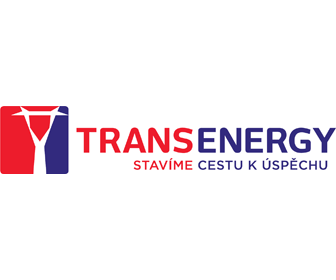Fundamental Values of Great Sports Personalities
 From the very first moment after a baby´s arrival to this world, we stress, according to Kamaveda, about how well the child will develop in the most diverse range of various skills required for success in life. For years, all our efforts are driven with the focus on robust health, locomotor, intellectual and creative development. These activities are extremely important but not sufficient by themselves. Any individual or platform, no matter how strong, must be controlled by a strong spirit. A person without a strong personality can never become a true champion and respected superstar.
From the very first moment after a baby´s arrival to this world, we stress, according to Kamaveda, about how well the child will develop in the most diverse range of various skills required for success in life. For years, all our efforts are driven with the focus on robust health, locomotor, intellectual and creative development. These activities are extremely important but not sufficient by themselves. Any individual or platform, no matter how strong, must be controlled by a strong spirit. A person without a strong personality can never become a true champion and respected superstar.
Our experts assume that current Czech teams, even the most popular team sports have been losing due to the lack of discipline, respect, self-reflection, strength and courage to win. Czech athletes have gradually started to adopt and practice sports skills from more developed worlds, but they lack solid fundaments. We then declare that everybody is confused with the adverse development of our teams, which keep losing and further declining because their leaders lack tough bodies, spirits, and faith. In the past, the mentality of a Czech athlete was an advantage in competition, it was a component of his/her personality. We lost the advantage and now, first and foremost we must make the effort to restore it. We have not only lost the advantage, but we have also lost the principles that form such strong personalities that can handle victory and defeat.
If we made simple sentences from all the above we can say:
We have beeb beaten for the lack of values
Based on my whole life experience with the Czech sports environment I can say that the problem is not in our children. Young athletes are always a reflection of their forming environment. They are a reflection first of the family, of which we can influence; and second, the sports environment, which we as the parents have a much harder time influencing. An athlete is a true reflection of the values that prevailed in his/her environs at the time when he/she as a child adopted the requirements of the future life and like a sponge, eagerly absorbed all the information around them.
Why do we stress values when a game of soccer, ice hockey, basketball or volleyball is just a question who wins?
After years of lethargy, do we make a big deal out of sports science?
All evidence supports the idea that we do not make a big deal out of it. Sociologists define values as relatively stable attitudes and ideals representing what is in the sports community, and what is recognized and regarded as good and desired. Simultaneously, by contrast it opposes everything that is undesired and should not be done.
Values have fundamental influence on attitudes and behaviour of a person. They guide him/her throughout various life situations and challenges them to reach goals using appropriate and proper means.
In the Czech Republic, over the past thirty years, there is a feeling that has been deeply engrained in many of our athletes. The feeling is: "OK then, maybe we can go but only if it does not hurt." This feeling may be acceptable for recreational football games with friends at the park, or for the once a year volleyball game played by the lake while on vacation. However, a person with this kind of feeling will never become a world champion.
One of the greatest athletes of all times, Cassius Clay alias Muhammad Ali was not a sociologist, but the fact did prevent him from having original ideas expressing his integrity and become the best boxer. Probably also thanks to his strong conviction that:
„Champions aren't made in gyms. Champions are made from something they have deep inside them: A desire, a dream, a vision. They have to have last-minute stamina, they have to be a little faster, they have to have the skill and the will. But the will must be stronger than the skill."
Yes, I would stress the words: "the will must be stronger than the skill." In the small-minded and undemanding Czech conditions, athletes often achieve some success with the skills they have improved on above the common standards. These skills may be an advantage for them during their whole career. It is the extra effort given above the rest that is required for success. However, once you travel abroad you learn that hundreds and thousands of athletes have the same level of skill, the skill level by itself is just not enough. A young athlete who wants to be able to compete with the best athletes must work on their skills with strong conviction and dogged determination.
An American journalist, Sam Walker, analysed in his book sixteen of the most successful teams in sports history. He tried to discover the essence of their success and looked for the traits they had in common. He tried to discover the secret hidden strength that gave rise to their dominance and made them immortal legends. He reached the conclusion that the common trait was the values of their leaders.
Robert Kaplan, a writer, analyst and advisor of US Department of State, one of the world's "Top 100 Global Thinkers." by Foreign Policy magazine claimed that a true leader must be able to successfully communicate his/her vison and values to others. A real true leader is totally firm concerning the basic values.
The presentation of the above information may lead us to the threshold of knowledge that values surely play the primary role in current top-level sports. At the very beginning of the process of discovering the magical world of sport, learning and honing the skill, the family should establish some principles. What are the dreams, plans, rules and visions we would always remember in the time of decision over both crucial and seemingly marginal questions?
For such inspiration, sport experts set up several major principles followed by today´s successful sports organizations:
- Love to Sports
The Media often present sport only as a fight, but sport is primarily an expression of love. Love for activity, for your team, homeland, and people. Sport practiced with a heart filled with love is more powerfully stirrer than calculation by reason. Love is a fundamental element of success in life. - Enthusiasm, passion and joy
If you feel love, in sport you will also find enthusiasm, passion and joy. However, if you wake up in the morning without the feeling of enthusiasm for a particular activity you will hardly exploit your potential in it. You will become the same person as you behave. If you wake up bored and if you feel bored you will be bored as will be the people around you. - Trust - Belief
Muhammad Ali said: "To be a great champion you must believe you are the best. If you're not, pretender you are!" The advantage of this belief is that it overcomes the doubts of reason and fear of troubles. It requires profound belief to give everything you have every day. Great goals have never been achieved without true and profound belief. - Courage
A leader never lacks courage, even the courage to make change or the courage to struggle for the ideals he believes in. Muhammad Ali one more time: "He who is not courageous enough to take risks will accomplish nothing in life." Success holds far more value to a person because of the hard work and effort it took to reach it. Our addiction to comfort and easy is at war with the true work ethic. - Respect
People do not have to be necessarily in love with one another but everyone must respect each other. Respect is the basic prerequisite and condition for cultivating high values. We express our values in the ways we behave to players and referees in sports centres, in the way we follow rules and in the ways we communicate. Every day we build the sky our kids play under. The sky, which athletes grow up under is how they represent us. It depends on us whether they walk through life holding their heads up high or whether they will "eat dirt". - Fair Play
Fair play is an expression of human integrity and values: it is nothing more than doing the right things. In sport, there is no higher ideal than gentlemen-like manners and fair play. In this regard, the fact that we played fair counts more than the actual result. It is doubly important in children. - Team cooperation
The leader who encourages team cooperation gives values and shapes the team identity. Team cooperation is not only playing together but also mutual respect, trust and care.
The words of Muhammad Ali cited in the third principle about belief is quite an important message to all caring parents who tirelessly support their children every day on the way to their sport dreams. Should your child be the best in something you, in many respects have to become the best parents. If you set yourself up to your children as an example of belief and determination to achieve the best success possible, sooner or later the children will catch the idea and it will become a part of them. A really good parent of a successful child must have great belief in the chances of success. Without this belief it is impossible to struggle every day in the often unequal and merciless fight with numerical superiority and with all the opponents we may face. Without this belief it is impossible to generate enough energy again and again to overcome the obstacles that cast doubt about the future success of your child.
Dave Wohl, General Manager of the NBA team the Los Angeles Clipers says:
"Values are not just a piece of paper you put them down on. It is something you have to pay attention to permanently. We cannot just hang out a codex and leave hoping that everything will start working by itself. When we are not as successful as we wished, it was not that our values were bad, but that we were unable to put them on the right level in the organization. We must keep on talking with people and keep reminding them of these values. We have to take care of it every day and constantly ask if everything is the way we want it.
We are what we do. Values sprout from the seeds of vision and require everyday care, patience and time to blossom and ripen. They must be constantly maintained and cultivated. If you hold your values in respect for long enough and consistently, they will become a part of your character."
Ralph Krueger, a former German-Canadian ice hockey player, Coach of the Swiss national ice-hockey team for 12 years, Coach of the Edmonton Oilers, Head Coach of Team Europe in the 2016 World Cup of Hockey that surprisingly got to the finals, a member of the staff coaching team of team Canada for the Winter Olympic Games of 2014 in Sochi. In 2014, he left ice hockey and became a chairman and currently a motivation coach of Southampton SC, a newly promoted team in the league. His team held on to second place after Chelsey FC. Krueger is regarded as a top sports motivator and has published a bestseller book Teamlife - Beyond Setbacks to Success. Krueger says: "if you care for others in a sports organization more than for yourselves you will be surprised with the result. If you build something new and you want it to be excellent built it on excellent values."
After his arrival to Southampton he met with all the employees of the club. He wanted to present them with the vision of how the common values should be set up. The values include respect, unity, responsibility and creativity. All The employees in the organization had to believe and buy into the values, they had to live with them every day, they had to choose to live by these values for themselves.
The goals of the club are to create an attractive and successful style of playing. They had to build a team of players coming up from the youth system, but first and foremost the goal was to raise successful young people. Values are the fundaments of upbringing of both a young man and athlete. Southampton is a sports club built on values. They are evinced in the ten commandments:
- Shirts tucked in, socks pulled up
- Shake hand policy
- Open doors
- Greet visitors
- Clean boots
- On time, never late
- 24-hour professional attitude
- Welcoming newcomers
- An Ambassador role
- Be honest, tell the truth
Many successful teams have their values and visions firmly set up. All team members know them, follow them and live by them. Values determine the way to accomplish the goals. The most important aspect of a team are their values, scoring goals come second.
What can we as parents take from that?
A lot, I suppose. Family, in our country, is often a small sports organization and to be successful as parents we should build our parenting practices on excellent values. Czech and Slovak environments need such a revival. Parents should claim allegiance to the following critical values:
- Be positive
- No doping ever
- No plots, no preferential treatment, no bribes
- Be diligent and creative
- Learn from faults and failures
- Be honest and truthful
- Moving forward as a team/family, not just the individual/child
- Show interest in the other children as well
- Rejoice in success, achieve them by playing fair
A small get together where the values are presented to all family members who are supposed to participate on their functioning is the best way of introducing the new values permanently in your family. Discuss them and adopt the values which everybody agrees with. It is then more difficult to give up or break a value because all family members, particularly children supervise them.
Great personalities keep their values inside but they proudly publicly represent them. Their values influence their decisions. Good values work as a magnet, they attract good people. Foundational stones of success are as follows:
- Diligence
- Friendship
- Faithfulness
- Cooperation
- Enthusiasm
The rest will fall in place. Values address students literally at every step at the most successful US universities. Students learn them in sports and after they graduate from the university, they communicate the values to society though their profession. Therefore, organizations very much demand and appreciate former university athletes. During their studies they must prove they have their values well established. These values help determine how they will respond to life struggles. There is no human resources officer, who could reject such values.
An NHL team, the New Jersey Devils, spent one week at the top military academy in West Point as a part of 2017/2018 preseason training. They practiced some units of hard military training and team building the same way as cadets of the military academy do. They learnt that graduates from the academy are more attractive for human resources offices of top companies then graduates from Harvard. The requirements on West Point students are incredibly demanding and people capable of passing through the "fire" will have had their character proven by many tests. Again, everything derives from a strictly followed value list that no graduate from the academy dares to break.
Source:
Jan Procházka, Michal Barda, COACH magazine, s. 20-23
JUDr. Pavel Zacha

- +420 775 178 805
- This email address is being protected from spambots. You need JavaScript enabled to view it.





 Vytvořeno v XART.CZ
Vytvořeno v XART.CZ